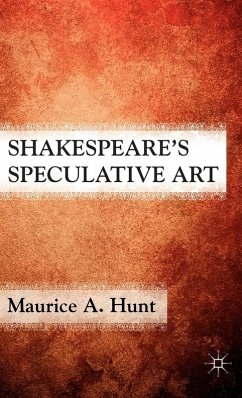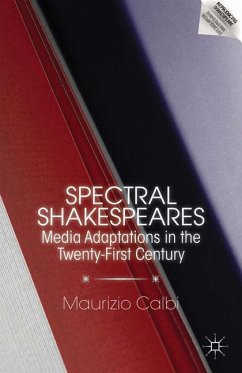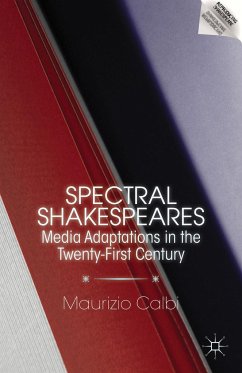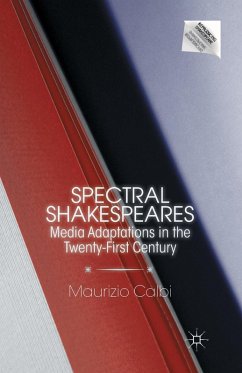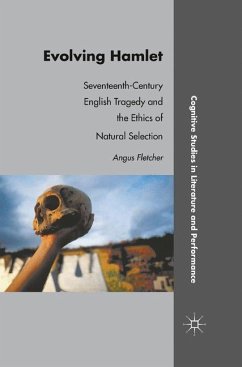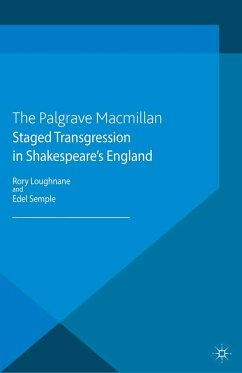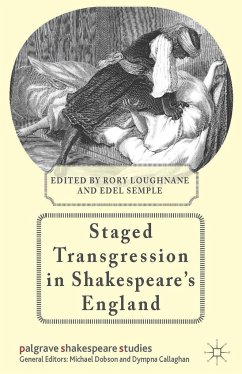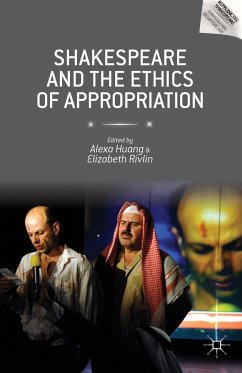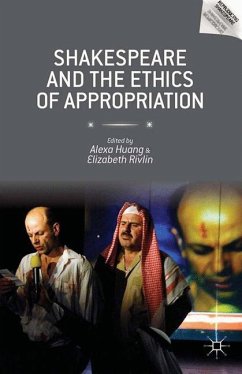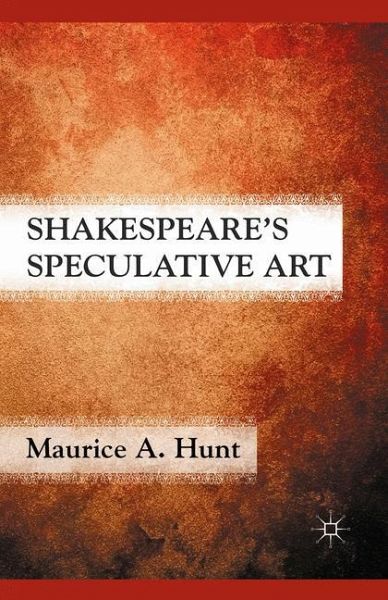
Shakespeare's Speculative Art
Versandkostenfrei!
Versandfertig in 6-10 Tagen
38,99 €
inkl. MwSt.
Weitere Ausgaben:

PAYBACK Punkte
19 °P sammeln!
This is the first book-length analysis of Shakespeare s depiction of specula (mirrors) to reveal the literal and allegorical functions of mirrors in the playwright s art and thought. Adding a new dimension to the plays Troilus and Cressida, Julius Caesar, Macbeth, Hamlet, King Henry the Fifth, Love s Labor s Lost, A Midsummer Night s Dream, and All s Well That Ends Well, Maurice A. Hunt also references mirrors in a wide range of external sources, from the Bible to demonic practices. Looking at the concept of speculation through its multiple meanings - cognitive, philosophical, hypothetical, an...
This is the first book-length analysis of Shakespeare s depiction of specula (mirrors) to reveal the literal and allegorical functions of mirrors in the playwright s art and thought. Adding a new dimension to the plays Troilus and Cressida, Julius Caesar, Macbeth, Hamlet, King Henry the Fifth, Love s Labor s Lost, A Midsummer Night s Dream, and All s Well That Ends Well, Maurice A. Hunt also references mirrors in a wide range of external sources, from the Bible to demonic practices. Looking at the concept of speculation through its multiple meanings - cognitive, philosophical, hypothetical, and provisional - this original reading suggests Shakespeare as a craftsman so prescient and careful in his art that he was able to criticize the queen and a former patron with such impunity that he could still live as a gentleman.



